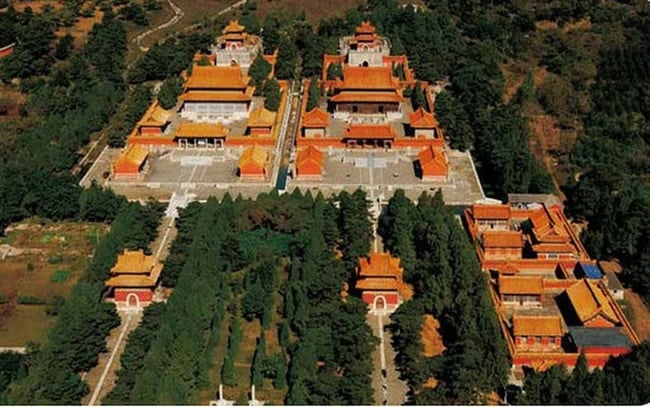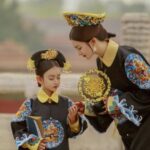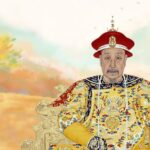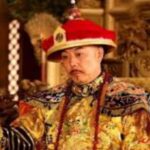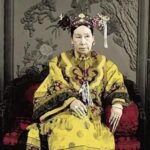Was Blocking the ‘Divine Path’ the Official Reason?
According to local records, ‘Dich Huyen Chi’, in the 3rd year of Emperor Qianlong’s reign, he discovered the tomb of Tian Wenjing while visiting and offering sacrifices to his father, Emperor Yongzheng’s, mausoleum. Tian Wenjing’s tomb was found to be blocking the main feng shui axis, or ‘Shen Dao’, leading to the imperial tomb. This obstruction prevented the emperor’s carriage from entering as per ritualistic norms.
Consequently, the officials guarding the mausoleum ordered the leveling of Tian Wenjing’s tomb. However, many scholars argue that this reason is unconvincing. The funeral rituals of the Qing Dynasty were stringent, and the burial of a close aide near the imperial tomb would have followed strict regulations. Moreover, since Tian Wenjing passed away before Emperor Yongzheng, his tomb could not have blocked the ‘Shen Dao’ of Tai Ling.
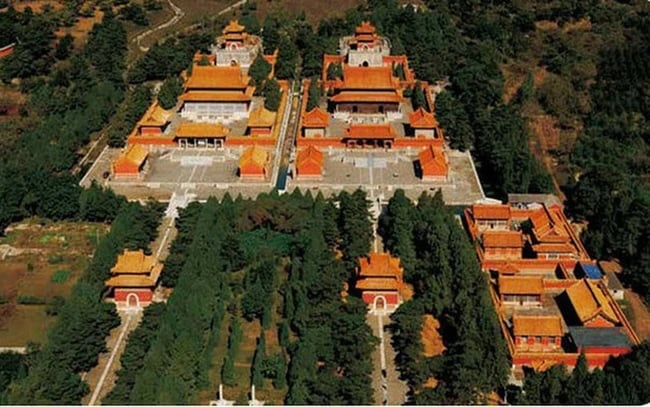
Tian Wenjing – A Trusted Aide of Emperor Yongzheng
Tian Wenjing, a former Jiansheng (a low-ranking official), worked at the grassroots level for decades before being promoted when Emperor Yongzheng ascended the throne. This promotion adhered to the principle of ‘valuing ability over background and integrity over seniority’. During his tenure as the Governor of Shanxi, he improved bureaucratic inefficiencies, gaining Emperor Yongzheng’s attention. He was then transferred to Henan as the Provincial Governor, where his decisive and robust governance style effectively implemented the new policies of Emperor Yongzheng.
In the 6th year of Emperor Yongzheng’s reign, Tian Wenjing was appointed Governor-General of Henan and Shandong. Known for his integrity and fearlessness in holding others accountable, Emperor Yongzheng praised him as a ‘model for local officials’. After his death, he was buried near Tai Ling and bestowed the posthumous title of ‘Duan Su’.
Emperor Qianlong – Redefining His Predecessor’s Legacy?
During Emperor Qianlong’s reign, many of Emperor Yongzheng’s trusted aides, such as Zhang Dingyu and Li Wei, were either underrated or punished. Regarding Tian Wenjing, although not directly criticized, Emperor Qianlong once blamed him for concealing a natural disaster in Henan, which caused suffering to the people.
In the 5th year of Emperor Qianlong’s reign, the Henan Provincial Governor, Ya Ertu, proposed removing Tian Wenjing from the Henan Temple of Worthies. Emperor Qianlong disagreed but did not wholly defend Tian Wenjing’s reputation.
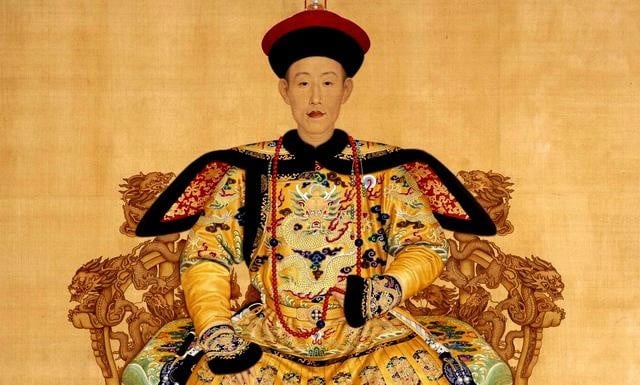
Conclusion: A Deliberate Act?
Although there is no explicit evidence that Emperor Qianlong directly ordered the leveling of Tian Wenjing’s tomb, it is unlikely to have occurred without his tacit approval. This act reflects Emperor Qianlong’s attitude towards his predecessor’s close aides and indicates his desire to assert his power and reshape the dynasty’s legacy according to his vision.
Why Did Consorts Need to Be Escorted After Bedding the Emperor?
The intrigue and mysteries of the imperial harem have long fascinated historians and enthusiasts alike. One such intrigue is the practice of consorts being escorted back to their quarters after an intimate encounter with the emperor. This was no mere courtesy, but a pivotal protocol within the confines of the forbidden city.


























